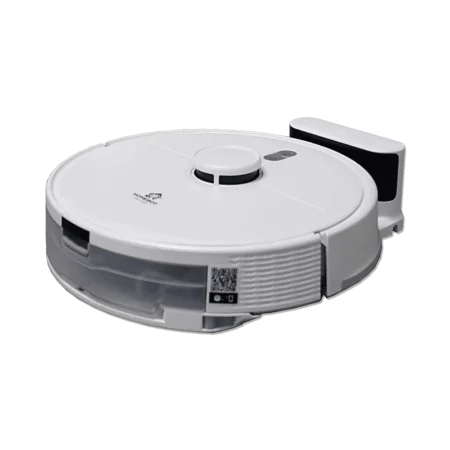1 November 2025
By Elaine Murphy
elaine@TheCork.ie
Robot vacuums are becoming mainstream – there are many brands, mostly US and Chinese – now there is an option for one with an Irish accent, from a business based at Clounties, Dunmanway, Co Cork

Irish families looking for a smarter way to stay on top of housework this Christmas now have a new voice in the home, and it’s proudly Irish. West Cork-based home robotics start-up HomeBot Ireland, founded by Clara Mulligan and husband Alan O’Neill (CM Clipping services trading as Homebot Ireland), has just launched its latest innovation: Glider 6-in-1 robot vacuum and mop, now available with voice guidance in a real Irish accent, voiced by none other than DJ Louise Clarke.
With self-emptying, self-washing and drying functions, suitable for all floor types, the Glider is designed to make home cleaning effortless and fun ahead of the festive season. The Irish voiceover not only makes set-up and daily use easier, it also adds personality and warmth. With accessibility in mind, the voice makes the product more accessible to the elderly and people with mobility issues, and is much more family-friendly, by helping warn children and pets of its presence.
“I was absolutely delighted when Clara asked me to lend my voice to the new Glider. It’s great to be part of a project that supports Irish families and makes life a bit easier, and a bit more fun. I am always very happy to support local Irish family-run companies”,
said Louise Clarke.
Founded in 2024 by Clara Mulligan and her husband Alan O’Neill, HomeBot Ireland was inspired by Clara’s father-in-law, who struggled to maintain his garden during the COVID lockdowns. The company’s first product, Buddy, a user-friendly, wireless robotic lawnmower, quickly became a best seller. One year later, HomeBot Ireland has grown into a national brand with a suite of smart robotic cleaners, including vacuums and mops, all designed around the real needs of Irish families.
“We’re building products that actually work for Irish households, whether new or more traditional, for example with door saddles or no Wi-Fi in half the rooms,” said Clara Mulligan, co-founder. “Everything we do, from design to customer care, is grounded in empathy, practicality, and real problems our customers face.”
With support delivered fast via WhatsApp, HomeBot Ireland has earned a reputation for real-time, human-first customer care. “We live in West Cork, and when people message us, it’s us replying. That’s what makes us different, and why people keep coming back”, Clara adds.
Looking ahead, the company plans to launch Ireland’s first robotic window cleaner in early 2026 and continue developing a robotic solar panel cleaner, a first for Irish homes.
“We are growing steadily and with purpose. We want to bring smart, simple, sustainable tech into Irish homes and give people their time back, one robot at a time”,
added Clara.
“While we have made efforts to find ways to manufacture in Ireland, unfortunately there currently is no capability to manufacture the tooling required here at home. For example, from extensive research, we have found out that it would take at least 18 months to build the tooling required, at which point the robotics space will have moved on, making the tools obsolete. The only alternative was to look at manufacturing leaders abroad.”
“All the technology for robotic vacuums has been available for a while. For example the carpet sensors are the same technology that it is in a traditional parking sensor on a car. Therefore, this technology cannot be patented. Where the innovation comes in is the design and engineering of the HomeBot Ireland products, with considerable input from the our experience as consumers and in real life testing with real users, with a strong focus on the elderly, a key core audience we have in mind when considering the product’s accessibility and ease of set up, use and servicing. While the HomeBot Ireland products have innovative functions, such as the ability to run the robots without Wi-Fi, allowing a new cohort of people, for example the elderly, to enter the robotic space with very low entry barriers, unfortunately, this technology is not patentable.”
